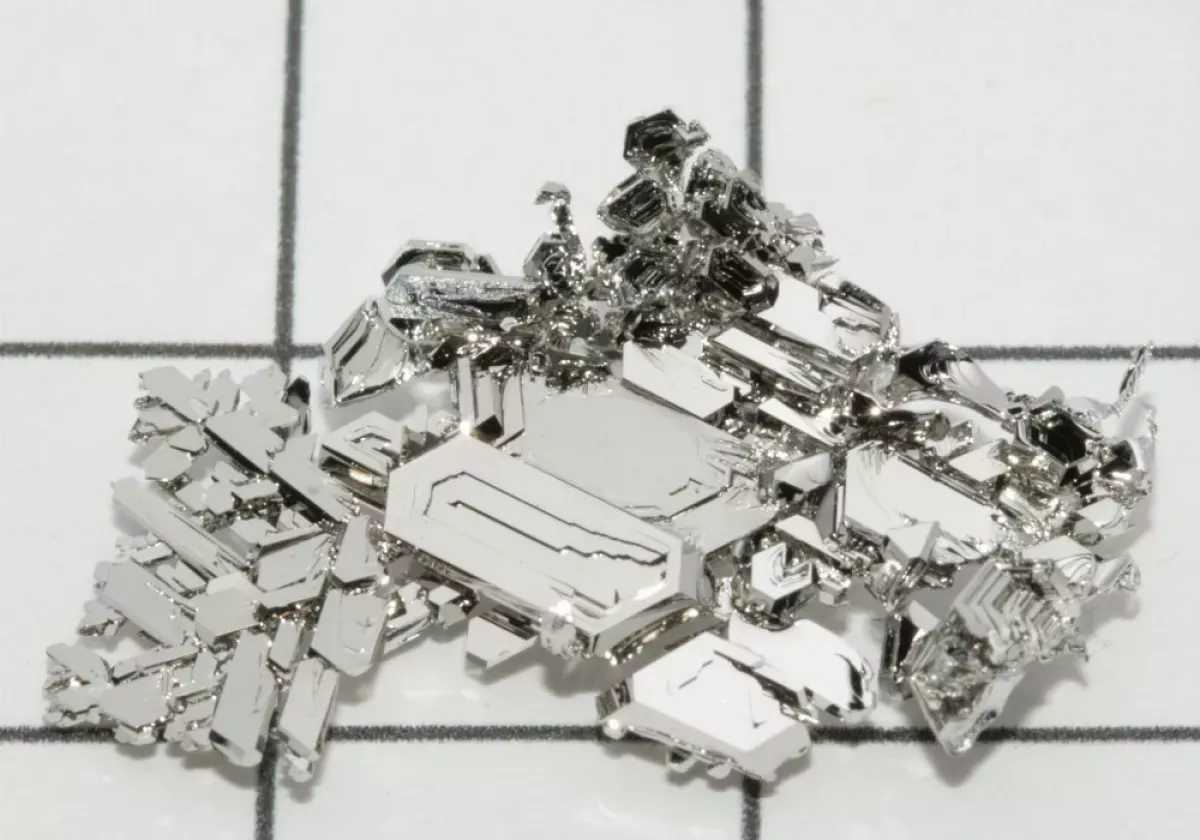Platinum (Pt), atomic number 78, is a dense, malleable, ductile, and highly unreactive silverish-white transition metal. Its name comes from the Spanish word "platina," meaning "little silver." Known for its precious metal status, platinum's unreactive nature makes it valuable in various applications.
1906: Discovery of Platinum in the Bushveld Region
Platinum was discovered in the Bushveld region of South Africa in 1906.
1924: Discovery of the Merensky Reef
In 1924, Hans Merensky discovered the Merensky Reef in South Africa, a major source of platinum, containing about 75% of the world's known reserves.
1927: Platinum Mining Begins in Platinum, Alaska
Platinum mining operations commenced in Platinum, Alaska, in 1927.
1960: End of Platinum-Iridium Meter Standard
The use of the platinum-iridium international prototype meter as the standard definition of a meter ended in 1960.
1975: 17,000 kg of Platinum Mined in Platinum, Alaska
By 1975, approximately 17,000 kg of platinum had been extracted from the mine in Platinum, Alaska.
1990: Standard Platinum Resistance Thermometer
The Standard Platinum Resistance Thermometer (SPRT) became one of the defining instruments for the International Temperature Scale of 1990 (ITS-90).
2007: Nobel Prize in Chemistry
In 2007, Gerhard Ertl received the Nobel Prize in Chemistry for his research on the molecular mechanisms of catalytic oxidation of carbon monoxide over platinum, which is crucial for the functioning of catalytic converters.
2010: South Africa Leads Platinum Production
South Africa became the leading producer of platinum in 2010, accounting for nearly 77% of global production.
2014: Platinum Usage Distribution
In 2014, the majority of platinum was used in vehicle emissions control devices (45%), followed by jewelry (34%), chemical production and petroleum refining (9.2%), and electrical applications (2.7%).
May 2019: Redefinition of the Kilogram
The definition of the kilogram was changed in May 2019, no longer being based on the international prototype kilogram, a platinum-iridium cylinder.
Mentioned in this timeline
Africa is the second-largest and second-most populous continent comprising of...
South Africa officially the Republic of South Africa RSA is...
Alaska a non-contiguous U S state in the northwest of...
Carbon monoxide CO is a colorless odorless tasteless and flammable...
Trending

8 months ago Trump's White House Rose Garden Paving Sparks Controversy After Melania's Redesign; Bulldozing Begins.
2 months ago Hall High School in West Hartford went into secure mode; no weapon found.

3 months ago Upstart's Q3 Earnings: Mixed Results, Soft Q4 Guidance, and Stock Slides After Announcement.

3 months ago Frank Reich Returns to Carolina, Set to Face Bill Belichick Once Again.

Penguins are flightless semi-aquatic seabirds almost exclusively inhabiting the Southern Hemisphere with the exception of the Gal pagos penguin Adapted...

2 months ago Alina Habba Disqualified: Court Rules Against Former Trump Lawyer in New Jersey Role
Popular

Thomas Douglas Homan is an American law enforcement officer who...

XXXTentacion born Jahseh Dwayne Ricardo Onfroy was a controversial yet...

William Franklin Graham III commonly known as Franklin Graham is...

Jupiter is the fifth and largest planet from the Sun...

Instagram is a photo and video-sharing social networking service owned...

Martin Luther King Jr was a pivotal leader in the...
